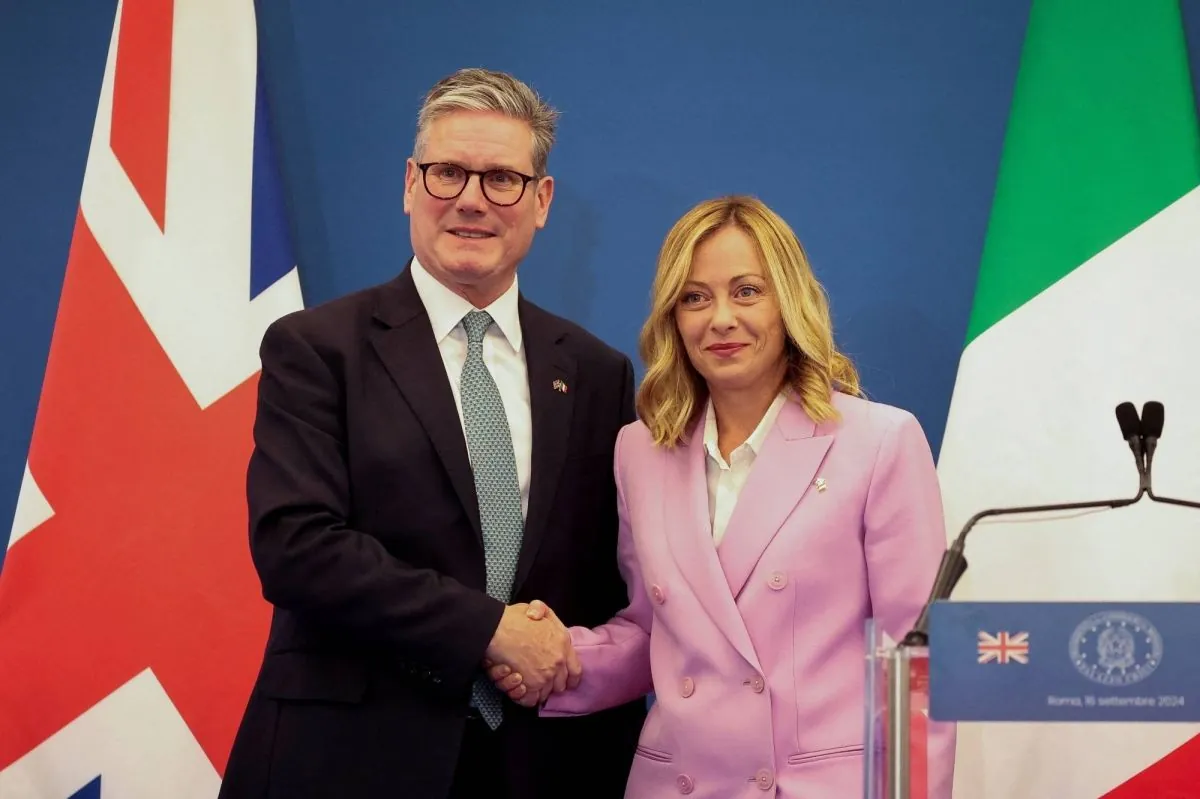Labour's Shift on Migration: Learning from Italy's Tough Stance
Sir Keir Starmer explores Italy's migration policies, signaling a potential shift in Labour's approach. The visit raises questions about the party's willingness to adopt stricter measures to curb Channel crossings.

Sir Keir Starmer, leader of the UK's Labour Party, recently visited Italy to study the country's approach to reducing asylum seeker arrivals. This visit, occurring on September 17, 2024, marks a significant shift in Labour's stance on migration policies.
Italy, under the leadership of Prime Minister Giorgia Meloni, has successfully reduced Mediterranean crossings by two-thirds. This achievement is attributed to enhanced border checks and international agreements with North African countries like Tunisia and Libya. Italy's approach bears similarities to the UK's £490 million agreement with France, which funds additional police and Border Force officers to prevent boat departures.

Despite these efforts, approximately 44,000 individuals have made the perilous journey across the Mediterranean in the past six months. Italy's agreement with Albania to process asylum seekers, while not yet implemented, mirrors the UK's controversial Rwanda plan.
Labour proposes to emulate Italy's success by strengthening the Border Force and pursuing international partnerships. However, they overlook a crucial aspect of Italy's strategy: the "hostile environment" towards irregular migrants. Italy detains asylum seekers for up to 18 months and imposes strict limits on non-state ships' rescue operations at sea.
The Italy-Albania agreement aims to process 36,000 migrants annually at the port of Shëngjin over five years. Interestingly, Sir Keir Starmer and Shadow Home Secretary Yvette Cooper, once vocal critics of the Conservative Party's Rwanda policy, now express openness to "off-shoring" asylum seeker processing.
"We are now open to 'off-shoring' the processing of asylum seekers."
This shift in Labour's position raises questions about their willingness to adopt tougher measures. The effectiveness of these policies ultimately depends on creating conditions that deter migrants from undertaking risky journeys, either through detention or limited prospects of permanent stay.
As the debate continues, it's worth noting that the concept of off-shore processing isn't new. Australia's Pacific Solution, introduced in 2001, set a precedent for such approaches. Moreover, the complexity of migration issues is underscored by international frameworks like the Dublin Regulation, which has governed asylum applications within the EU since 1997.
The Labour Party's potential adoption of stricter migration policies represents a significant departure from their previous stance. As the UK grapples with Channel crossings, the question remains: Is Labour prepared to make the tough decisions necessary to address this challenge effectively?


































